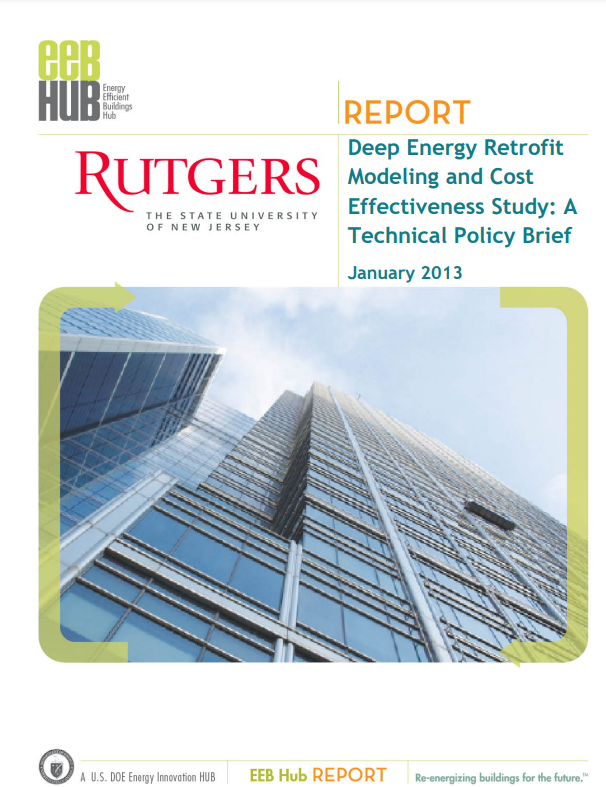This document comprises a technical evaluation and policy brief by the Rutgers Center for Green Building, with assistance from industry consultants Kipcon Inc./Energy Squared, of the energy savings and cost of 10 commercial advanced energy retrofits (AERs). The ten buildings are benchmarked against the requirements of the New Jersey Clean Energy Program Pay for Performance (P4P) program, performance requirements of the NJ Green Building Manual, and EEB Hub goals. Specifically, this report summarizes the findings from taking 10 multi-family buildings that participated in the P4P program and models additional energy saving measures to determine how costly it would be to take a building to the maximum achievable energy efficiency, without incorporating power generation. Investigation into these improvements leads to the conclusion that effectiveness of energy improvements is determined by more than just economic impact, entailing matters of organizational structure – especially the split incentive between the developer and subsequent building owner, and changes in occupancy patterns and behavior. First costs and lack of knowledge about state incentive programs continue to be barriers to increased energy efficiency gains, as does a low inclination towards sub-metering. A summary of the findings is given below for quick reference. Detailed explanations of the energy savings measures can be found in the later sections.
Deep Energy Retrofit Modeling and Cost Effectiveness Study: A Technical Policy Brief
Citation:
“Deep Energy Retrofit Modeling and Cost Effectiveness Study: A Technical Policy Brief”. Prepared by the Rutgers Center for Green Building at Rutgers University for the Energy Efficient Buildings Hub, Philadelphia, PA. 2013.
